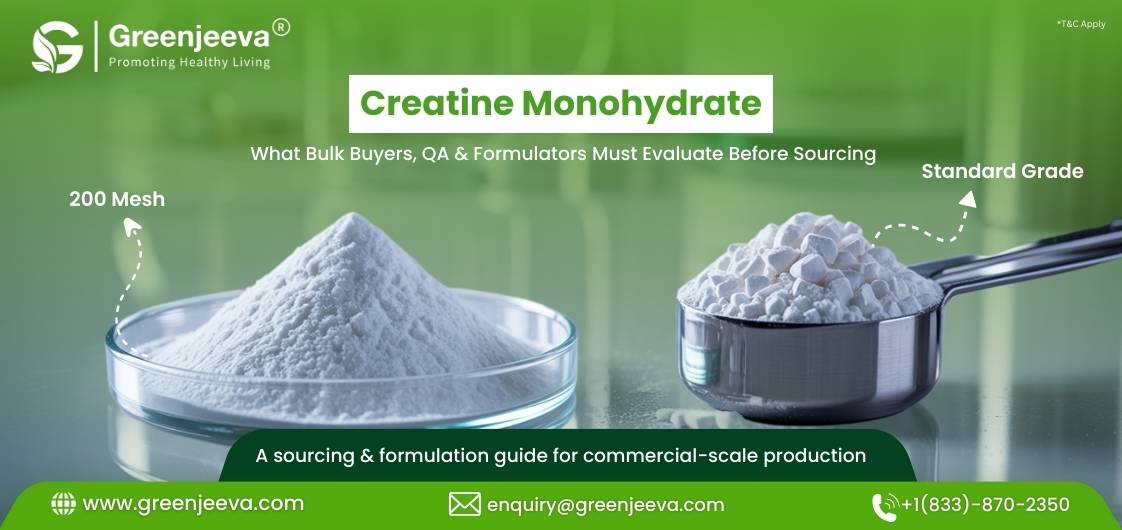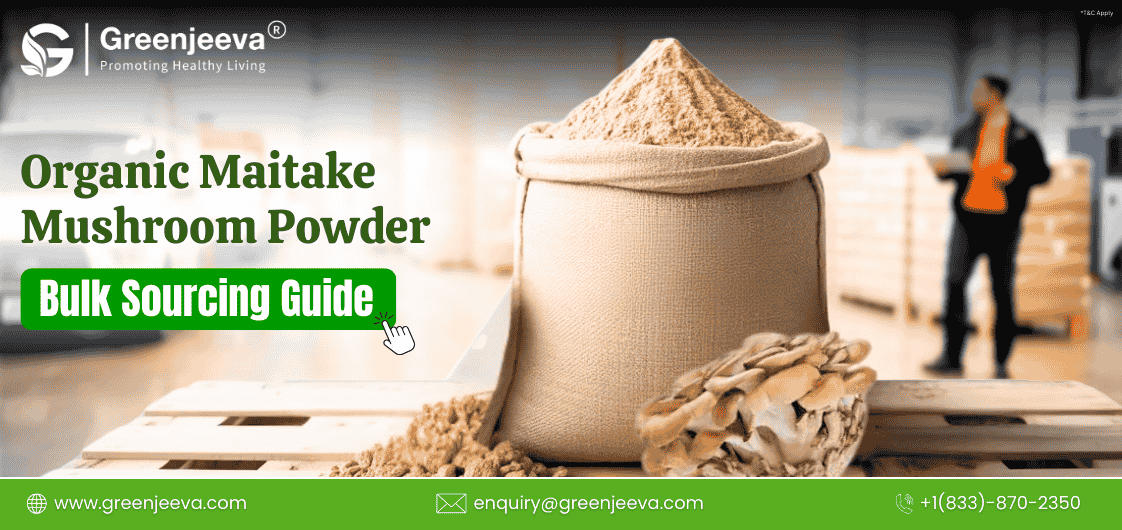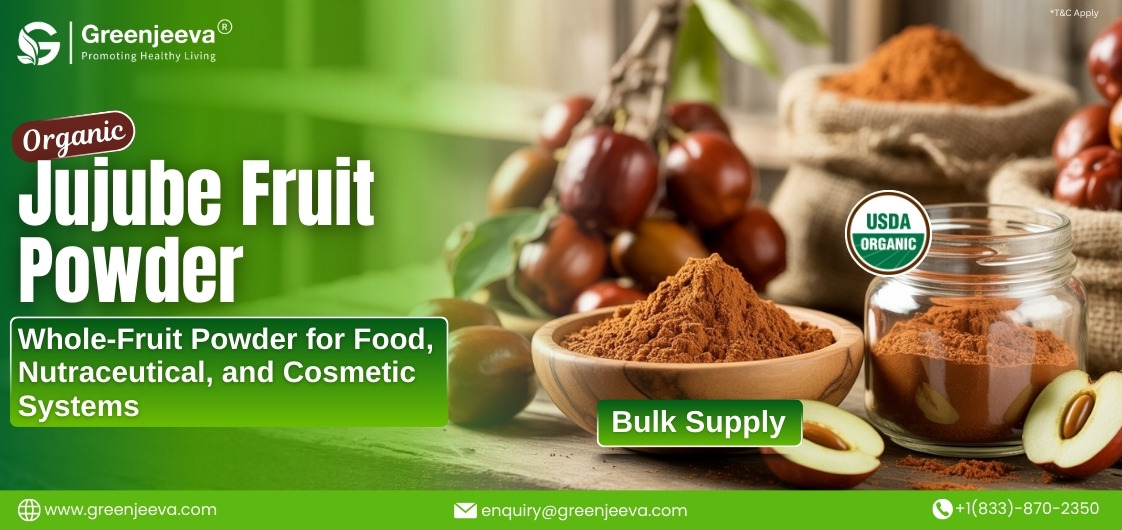Organic Pumpkin Seed Protein Powder vs. Other Plant-Based Proteins: What Bulk Buyers Should Know

If you’ve ever browsed the protein powder aisle or scrolled through nutrition trends, chances are you’ve come across the usual suspects—soy, pea, or brown rice protein. But there’s a quieter contender that’s been gaining steady attention in the health and wellness space: organic pumpkin seed protein powder.
For formulators, food brands, or businesses sourcing in bulk, this ingredient offers more than just another plant-based alternative. It brings versatility, clean-label appeal, and nutritional nuance to the table. So how does it compare to the more established players in the category? Let’s explore.
What Is Organic Pumpkin Seed Protein Powder?
Organic pumpkin seed protein powder is derived from cold-pressed, defatted pumpkin seeds. The resulting cake is gently milled into a fine, functional powder that retains a wealth of nutrients.
What makes this ingredient stand out is its minimal processing. There are no solvents or harsh chemicals involved, making it ideal for brands that prioritize clean sourcing. It's available in both conventional and certified organic formats, making it a highly adaptable ingredient for those sourcing at scale.
From a bulk ingredient procurement perspective, it offers:
- Protein concentrations of ~60%
- Naturally occurring micronutrients
- Shelf-stable performance
- Compatibility with a wide range of product types
A Nutritional Profile Worth Paying Attention To
A Complete Amino Acid Source
Pumpkin seed protein contains all nine essential amino acids, which many plant proteins do not. While soy also meets this criterion, it’s often excluded due to allergen concerns. Pea and rice proteins typically require complementary blending to achieve completeness.
This makes pumpkin seed protein a convenient standalone option in protein blends, functional snacks, and wellness beverages.
Natural Mineral Content
One key differentiator is its natural concentration of:
- Zinc
- Magnesium
- Iron
These minerals remain intact thanks to the gentle production process and are present in meaningful amounts, especially compared to refined proteins like rice or pea, which are often stripped of micronutrients.
Easier on the Gut
Formulators often hear feedback about bloating or digestive discomfort associated with soy or pea proteins. Pumpkin seed protein has lower oligosaccharide levels and is generally well-tolerated, making it an ideal candidate for formulations targeting sensitive or general wellness audiences.
A Better Experience for the End User
Taste and texture matter more than most think especially in a competitive wellness market.
- Pumpkin seed protein: Mild, slightly nutty flavor, smooth mouthfeel
- Pea protein: Earthy, often requires heavy masking
- Rice protein: Gritty and dry with a bitter finish
Because of its natural palatability, pumpkin seed protein fits easily into clean-label formulations without the need for artificial flavor enhancers. It also improves the consumer experience in smoothies, bars, pancakes, and more.
Allergen-Friendly and Formulation-Friendly
As food allergies rise, the demand for hypoallergenic protein sources is also increasing. Here’s how pumpkin seed protein compares:
This makes pumpkin seed protein particularly attractive for inclusive nutrition formulations that cater to allergen-conscious markets.
The Sustainability Advantage
Sourcing matters not just for transparency, but also for environmental impact. Pumpkin seeds are:
- Water-efficient: Require significantly less irrigation than soy or almonds
- Low-input crops: Minimal need for pesticides when organically farmed
- Zero-waste: Oil is pressed first, then the cake is upcycled into protein powder
As part of a sustainable ingredient strategy, pumpkin seed protein supports brands striving to reduce environmental footprint while maintaining high nutritional quality.
Application Flexibility for Bulk Buyers
Pumpkin seed protein powder is incredibly versatile across categories. If you're a product developer, contract manufacturer, or brand scaling through bulk sourcing, here are just a few places where it works well:
- Smoothies and drink powders
- Protein bars and snacks
- Plant-based baking mixes
- Ready-to-mix (RTM) blends
- High-protein cereals and pancake mixes
Because of its taste neutrality and blendability, it performs exceptionally well in both dry and wet systems.
Why Bulk Buyers and Wholesale Clients Are Taking Note
Here’s what makes pumpkin seed protein a top choice for bulk procurement:
- Consistent supply chains with seasonal availability
- COAs, spec sheets, and third-party lab reports available on request
- Customization in mesh size, protein concentration, and packaging
- Certified organic options for clean-label positioning
- Wholesale pricing and volume-tier discounts available
As a bulk supplier, Green Jeeva supports end-to-end sourcing, including global logistics, QA documentation, and regulatory compliance.
Frequently Asked Questions (FAQs)
1. Do you provide ingredient sourcing and global supply chain support?
Yes. At Green Jeeva, we specialize in sourcing high-quality nutraceutical ingredients like organic pumpkin seed protein powder from certified, globally audited farms and processors. All our ingredients come with COA, MSDS, third-party lab reports, and full traceability documentation.
2. Can you support R&D and formulation development with your ingredients?
Absolutely. Our in-house R&D team works closely with clients to evaluate ingredient compatibility, develop custom blends, and assist with product innovation using our wide portfolio of bulk-supplied plant-based ingredients.
3. Do you assist with custom formulation development using pumpkin seed protein?
Yes. We support formulation development services for applications like smoothies, bars, clean-label RTM mixes, and more—using functional ingredients such as organic pumpkin seed protein powder along with complementary botanicals.
4. Is private labeling available for finished or semi-finished products?
Yes, upon request. We provide access to private labeling solutions through our network of trusted partners. While we do not manufacture or label directly, we can facilitate the process and help you customize packaging and branding for your product using our bulk-supplied ingredients.
5. Do you provide contract manufacturing solutions?
We do offer contract manufacturing support through certified third-party partners. While we do not operate in-house manufacturing facilities, we help connect clients to GMP-compliant manufacturers for pilot batches or full-scale production—particularly using plant-based and clean-label ingredients.
6. Is contract packaging offered as part of your service?
Yes, via our partner ecosystem. We coordinate with experienced packaging partners who offer diverse formats—pouches, jars, sachets, and bulk bags—based on your product’s requirements. Our goal is to provide ingredient-to-shelf support without needing you to manage multiple vendors.
7. Can you help with reverse engineering of NBE or INBE formulations?
Yes. Our technical team offers reverse formulation support for National Brand Equivalent (NBE) or Innovative Brand Equivalent (INBE) products. We help recreate or improve on existing formulations using compliant, functional ingredients like pumpkin seed protein.
8. Do you handle regulatory and quality documentation?
Absolutely. Every product we supply is backed by a rigorous Regulatory and QMS framework, including USDA Organic, FSSC 22000, Halal, Kosher, ISO, and Non-GMO certifications. We also provide region-specific documentation for compliance across global markets.
9. Do you offer Vendor Managed Inventory (VMI) programs?
Yes. For high-volume and recurring buyers, we offer Vendor Managed Inventory programs. We maintain stock of key ingredients like organic pumpkin seed protein and release them in scheduled batches—helping optimize your storage, working capital, and lead times.
10. Can you manage third-party logistics for global deliveries?
Yes. We offer third-party logistics (3PL) services for international and domestic delivery, including warehousing, freight forwarding, and real-time shipment tracking. This allows you to focus on formulation and branding while we handle the backend movement of your ingredients.
Final Thoughts: More Than Just a Trend
Organic pumpkin seed protein powder isn’t just another item on a long list of plant-based options it’s a strategically smart ingredient that satisfies multiple formulation needs. With its nutrient retention, digestibility, allergen safety, and sustainability profile, it’s well-suited for today’s product innovation demands.
Whether you're expanding your protein range, developing a new clean-label product, or switching to more cost-efficient bulk ingredients, pumpkin seed protein deserves your attention.
Partner With a Trusted Bulk Supplier
Looking for a bulk organic pumpkin seed protein powder supplier with traceable sourcing, full documentation, and dependable logistics?
Green Jeeva offers:
- Certified organic and conventional options
- Ready-to-ship bulk stock
- Lab-verified quality
- Fast dispatch and responsive support
- Transparent wholesale pricing and volume tiers
Reach out today to discuss your formulation needs or request a sample.
Disclaimer: This content is for educational purposes only. These statements have not been evaluated by the Food and Drug Administration. This product is not intended to diagnose, treat, cure, or prevent any disease.
**The Food and Drug Administration has not evaluated these statements. This product is not intended to diagnose, treat, cure, or prevent any disease. **






